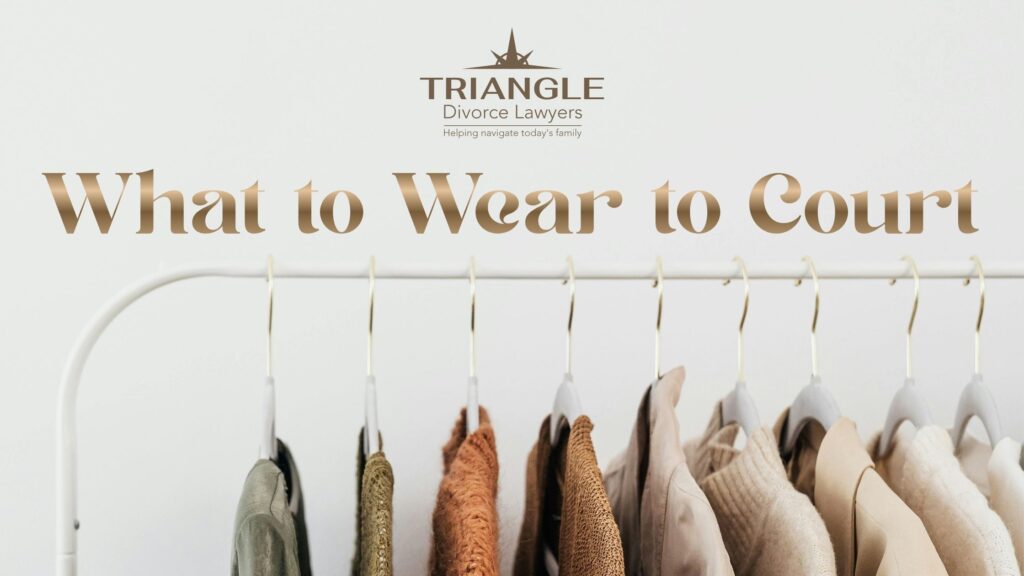When parents can’t agree on custody arrangements, North Carolina courts sometimes appoint a Guardian Ad Litem to represent the child’s best interests. If you’re facing a custody dispute in Wake County, Johnston County, or surrounding areas, understanding what a Guardian ad Litem does – and when one might be appointed – can help you navigate this process with greater confidence.
What Is a Guardian Ad Litem?
A Guardian Ad Litem is a court-appointed advocate whose sole responsibility is representing your child’s best interests during custody proceedings. Unlike the attorneys representing each parent, the GAL doesn’t take sides or advocate for either parent’s position. Instead, they serve as an independent voice focused entirely on what arrangement will best serve the child’s physical, emotional, and developmental needs.
In North Carolina, Guardians Ad Litem are typically experienced attorneys who have received additional training in child development, family dynamics, and recognizing signs of abuse or neglect. They understand how to communicate with children of different ages and how to assess complex family situations objectively.
When Courts Appoint a Guardian ad Litem
North Carolina courts don’t automatically appoint a GAL in every custody case. Instead, judges typically consider this step when certain circumstances make it particularly important to have an independent advocate for the child.
These situations often include cases involving allegations of domestic violence, substance abuse, or child abuse. Courts may also appoint a GAL when parents have significantly different parenting styles or when there are concerns about a child’s safety or well-being.
High-conflict custody disputes where parents cannot communicate effectively often benefit from GAL involvement. Additionally, if a child has expressed strong preferences about living arrangements or if there are complex family dynamics involving step-parents or extended family members, a Guardian Ad Litem can help the court understand the full picture.
In Wake County and Johnston County, we’ve seen courts appoint GALs in cases where one parent has mental health concerns that might affect their parenting ability, or when there are questions about a parent’s stability or commitment to the child’s routine and education.
The Guardian Ad Litem’s Investigation Process
Once appointed, the Guardian Ad Litem begins a thorough investigation into your family’s circumstances. This process typically starts with meetings with both parents, either separately or together, depending on the situation. The GAL will want to understand each parent’s perspective, their relationship with the child, and their vision for the custody arrangement.
The GAL will also spend time with your child, conducting age-appropriate conversations to understand their feelings, concerns, and preferences. These meetings often take place in comfortable, neutral settings where children feel safe expressing themselves honestly. Experienced GALs know how to talk with children without putting them in the middle of their parents’ conflict or making them feel responsible for the custody decision.
Beyond these direct conversations, the Guardian ad Litem may visit both parents’ homes to observe the living environment and see how parent and child interact in their natural setting. They might also speak with teachers, counselors, coaches, or other adults who know your child well and can provide insight into their needs and well-being.
If there are concerns about safety or allegations of inappropriate behavior, the GAL may request psychological evaluations, review medical records, or consult with mental health professionals. Throughout this process, they’re gathering information to form a complete picture of what custody arrangement will best serve your child’s interests.
How the GAL Advocates for Your Child
The Guardian Ad Litem’s advocacy role extends beyond simply gathering information. They actively participate in court proceedings, settlement negotiations, and mediation sessions as your child’s representative. This means they can object to proposed arrangements that might not serve your child’s best interests, even if both parents agree to them.
During court hearings, the GAL presents their findings and recommendations to the judge. They might testify about their observations, share insights from their investigation, and explain why they believe certain custody arrangements would be most beneficial for your child. This testimony carries significant weight because the GAL is seen as an objective party without personal interest in the outcome.
The Guardian Ad Litem also monitors the implementation of custody orders and can request modifications if circumstances change or if the current arrangement isn’t working in the child’s best interests. This ongoing advocacy can be particularly valuable as children grow and their needs evolve.
The Financial Aspects of Guardian Ad Litem Services
Guardian Ad Litem services do involve costs, which are typically divided between both parents according to their respective incomes and financial circumstances. In North Carolina, the court usually orders each parent to pay their proportionate share of the GAL’s fees, which can include hourly rates for investigation time, court appearances, and report preparation.
While these costs can add to the overall expense of your custody case, many families find that having a GAL actually helps resolve disputes more efficiently. The independent assessment and recommendations often help parents reach agreements without extensive litigation, potentially saving money and emotional stress in the long run.
Moving Forward with Confidence
If a Guardian ad Litem has been appointed in your custody case, remember that this represents the court’s commitment to making decisions based on your child’s best interests. The process may feel intrusive or stressful, but the GAL’s involvement often leads to more stable, workable custody arrangements that truly serve children’s needs.
At Triangle Divorce Lawyers, we’ve worked with many families navigating custody cases involving Guardians Ad Litem throughout central North Carolina. We understand how to collaborate effectively with GALs while advocating strongly for our clients’ parental rights and their children’s best interests.
If you’re facing a custody dispute or have questions about the Guardian ad Litem process, we’re here to provide the guidance and representation you need during this challenging time. Contact us at (919) 303-2020 to schedule a consultation and learn how we can help protect your family’s future.





